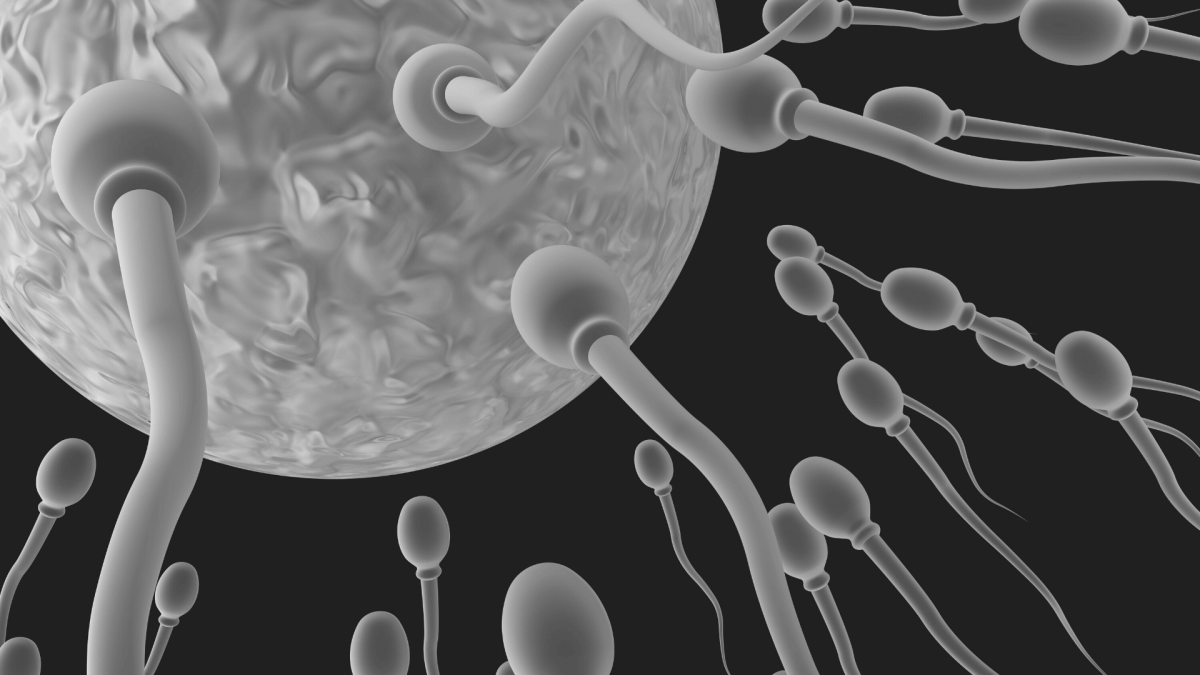I know there is a lot of talk about how amazing the female body is. And don’t get me wrong – it IS amazing! But let’s talk for a bit about the male body. It can make 1,500 sperm per second. Per second. Woah. And the testicles are producing sperm constantly from the onset of puberty, with the complete production taking ~74 days. A man’s sperm count is effected by a number of factors, including, testosterone levels, stress, genetics, infections, and lifestyle/diet. Between 1973 and 2011, the average male sperm count dropped 59.3%! That is insane. So what are simple ways to improve sperm health? Read on to see what we learned.
How are sperm classified as ‘healthy’?
The term “sperm health” includes three main metrics: quantity, movement, and structure.
Quantity – this is commonly referred to as sperm count. It is the number of sperm per ejaculation. A healthy count is anything over 15 million sperm per millilitre. Anything less than that and chances of conception decrease.
Motility – this metric looks at the percentage of sperm that are mobile. You are most fertile when at least 40% of your sperm are moving.
Morphology – this looks at the structure of your sperm. Ideally sperm should have an oval head with a long tail. Of the three metrics, this is the least important.
It is also important to note that chemotherapy can impair sperm production – sometimes permanently. This is because chemotherapeutic drugs target rapidly dividing cells (which is true of the cells that produce sperm). If you must undergo chemotherapy, it may be worth a discussion with your doctor about retrieving/freezing your sperm before treatment begins.
Simple Ways to Improve Sperm Health
There are so many things that you can do to help improve the overall health of your sperm. I will do my best to list the easiest changes first. Please: do not get overwhelmed by this list. It is huge. Start with the easiest for you to do and go from there. If you have questions about any of the suggestions listed below, definitely bring them up with your doctor to develop an action plan.
Keep Cool
As you know, sperm are produced and stored in the testicles. Did you ever wonder why they are outside of your body? Sperm are sensitive to temperature changes and this location allows your body to regulate their temperature a bit better. An increased scrotal temperature is known to hamper sperm production. If possible:
- wear loose fitting underwear.
- avoid saunas and hot tubs.
- limit scrotal exposure to warm objects (such as your laptop).
Easy enough, right?
Take Steps to Prevent Sexually Transmitted Infections
Some infections, namely chlamydia and gonorrhea, can cause infertility (in both men and women). Chlamydia, for example, can cause abnormal levels of DNA fragmentation in sperm. It can also negatively impact the morphology and motility of sperm.
The simplest way to prevent sexually transmitted infections is to use condoms.
See Your Doctor
Some prescription medications can decrease your sperm count. Typically if you are able to stop taking that drug, your sperm count should return to normal. Medications that can adversely impact sperm health include:
- some antibiotics
- anti-androgens
- opiates
- anti-inflammatories
- methadone
- anti-psychotics
- anabolic steroids (which can effect your sperm count for up to a year after you stop taking them!)
- anti-depressants
- exogenous testosterone
Avoid Lubricants
Lubricants have their time and place, but many of them have a tendency to trap or slow down sperm. This, obviously, makes it more difficult for the sperm to reach the egg in the fallopian tube. There are lubricants that are fertility friendly, the most common being PreSeed. Taking a few minutes to engage in foreplay may reduce the need to use an artificial lubricant, while increasing intimacy.
Take Your Vitamins!
This goes hand in hand with following a healthy diet. It is recommended that you:
- increase your consumption of antioxidant and calcium rich foods.
- decrease your consumption of red meats and canned foods. Canned foods are often higher in synthetic estrogens and BPA – both of which can impact your fertility.
- get enough vitamin D and calcium. Vitamin D aids in calcium absorption. Calcium deficiency can inversely impact sperm count.
- consume adequate levels of folate and zinc. These two substances can improve sperm concentration and count.
- get enough vitamin C. This boosts your immune system and can improve your overall fertility.
- consider a fenugreek supplement. This herb impacts semen quality and sperm count. The recommended dose is 500mg daily.
Stay Healthy
Generally speaking, anything that contributes to your overall health will benefit your fertility. The three factors that are easiest to work on include:
- Lose weight and exercise. Aerobic exercise can increase your sperm count and motility. This may be due to the change in your hormone profile. Though the evidence is somewhat weak, there are no adverse effects to losing a few pounds and becoming more active. Exercise is also known to boost testosterone levels, which are crucial to sperm health.
- Quit smoking. The sperm quality is lower in men who use tobacco moderately/heavily than in those who do not.
- Avoid alcohol and drugs. There are not many studies regarding illicit drug use because of ethical concerns. However, it is well documented that marijuana and cocaine decrease sperm production.
Relax
Stress causes cortisol levels in the body to rise. Cortisol is known to negatively impact testosterone levels, leading to lower sperm count. And, yes, relaxing includes having sex regularly!
I know this was a lot of information to digest, and it is not even the tip of the iceberg! I do hope that you found the information above to be helpful. This blog is not medical advice. It cannot diagnose, treat, cure, or prevent any disease. Reading this blog does not constitute medical advice. You are strongly advised to consult with your healthcare professional regarding these issues.
Other Blogs You May Like
Psst, Dad! You Don’t Have to Cut the Cord When Baby is Born!
Oh, Baby! Take Your Shirt Off!
Why We Won’t Tell You to “Get Frisky”
Additional Reading/Sources
Healthy Sperm: Improving Your Fertility
Exercise Improved Semen Quality and Reproductive Hormone Levels in Sedentary Obese Adults
How to Increase Sperm Count
Can STDs Affect My Ability to Have Children?
Chlamydia Reduces Male Fertility by Ravaging Sperm

